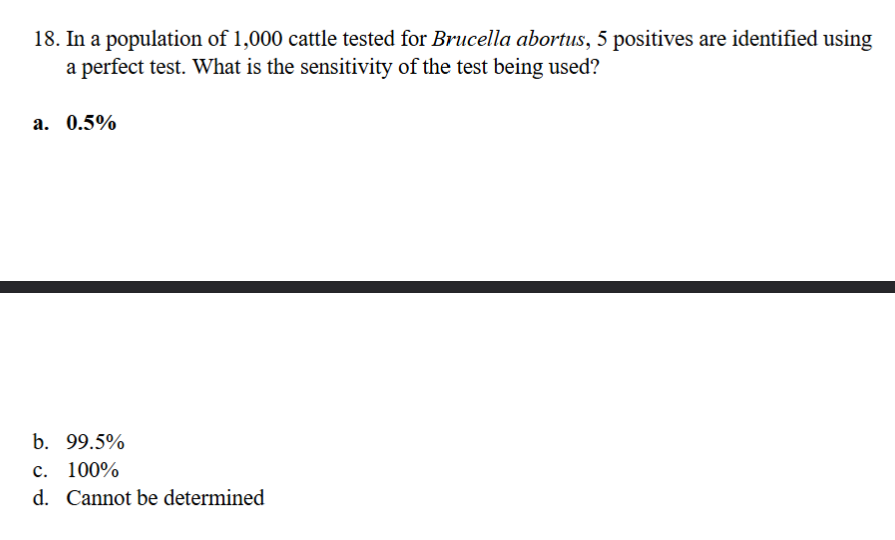In a population of 1,000 cattle tested for Brucella abortus, 5 positives are identified using a perfect test. What is the sensitivity of the test being used?

Understand the Problem
The question is asking for the sensitivity of a test used to detect Brucella abortus in a population of cattle. It provides the number of positives identified and states that the test is perfect. Sensitivity is calculated as the proportion of true positives to the total number of actual positives, which in this case is needed to determine the test's effectiveness.
Answer
$100\%$
Answer for screen readers
The sensitivity of the test is $100%$.
Steps to Solve
- Understanding Sensitivity
Sensitivity is calculated as the ratio of true positives to the total number of actual positives. The formula is given by
$$ \text{Sensitivity} = \frac{\text{True Positives}}{\text{True Positives} + \text{False Negatives}}. $$
- Identify the Data Given
From the problem, we know:
- Total number of cattle tested = 1,000
- Positives identified (True Positives) = 5
- Since the test is perfect, we assume there are no false negatives. Thus, the total actual positives equals the true positives.
- Calculating Sensitivity
Given that there are no false negatives, the total number of actual positives is simply the true positives. Now we plug in the values:
$$ \text{Sensitivity} = \frac{5}{5 + 0} = \frac{5}{5} = 1. $$
To express this value as a percentage, we multiply by 100:
$$ \text{Sensitivity} \times 100 = 1 \times 100 = 100%. $$
The sensitivity of the test is $100%$.
More Information
A sensitivity of $100%$ indicates that the test is perfectly effective in identifying all actual cases of Brucella abortus among the tested cattle. This means there are no missed cases.
Tips
- Confusing sensitivity with specificity. Sensitivity focuses on true positives, while specificity deals with true negatives.
- Misinterpreting the number of positive cases without considering the implications of a "perfect test."
AI-generated content may contain errors. Please verify critical information